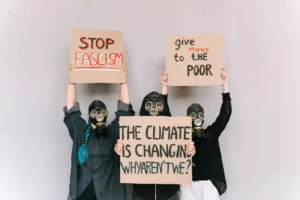Inequality is a key issue that affects people worldwide. It can have a significant impact on poverty levels, growth and human rights.
Poverty and inequality vary widely across countries, with many factors affecting the extent of these differences. It is important to fight inequality in a way that fits each country’s circumstances and goals.
Poverty

Poverty is a social and economic condition that occurs when a person or group lacks the resources to meet basic needs. This can include a person’s access to healthcare, education, housing, and other services that help them live a healthy life.
Many factors can contribute to poverty, including discrimination, racism, social disadvantage, and more. These factors can trap people in a cycle that leads to long-term poverty.
In the United States, income inequality has increased since 1980. This has happened as businesses replaced lower-skilled workers with technology requiring higher skills.
It has also occurred as globalization made it easier to outsource jobs. Structural racism has made it harder for Black Americans to accumulate wealth and earn higher incomes.
There are a number of ways to combat poverty and economic inequality, such as enhancing education, improving job opportunities, and providing financial assistance. These programs can increase an individual’s income and help them climb up the social ladder.
Income Inequality

Income inequality is a significant disparity in the distribution of income between individuals, groups, populations, social classes, or countries. A typical measure is the Gini coefficient, which ranges from 0 to 1, with 0 corresponding to precise equality and 1 a state of total inequality.
Rising income inequality can have a number of direct effects on people’s lives, such as changes in their own income. It can also have indirect effects, such as changes in a society’s political and economic institutions, social cohesion, culture, and norms of behavior.
In the United States, inequality has been on the rise for more than 30 years, and is now a major concern among researchers, policymakers, and the public. Various factors, including technological change, globalization, the decline of labor unions, and eroding minimum wages, have been linked to this trend.
Despite its negative consequences, rising income inequality is not inevitable or irreversible. It can be reversed through changes in policies and practices that promote social mobility, such as higher taxes on the rich and increased government spending on social programs.
Racial Inequality

Racial inequality is a term used to describe the differences in social, economic and cultural advantages that are granted or denied to different races within a society. It can be a result of historic oppression, inequality of inheritance, or racism and prejudice, especially against minority groups.
In the United States, racial inequality is manifested in social disadvantages such as lower levels of home ownership and higher rates of poverty among Black Americans than Whites. This largely stems from a long history of systemic racism, such as the policy known as redlining that denied mortgages to Black sharecroppers in the 1930s.
Inequality also affects people’s lives in other ways, such as stifling intergenerational mobility – the ability for someone to reach higher levels of economic success than their parents. Research has shown that for a child born in 1940, they had about a 90% chance of out-earning their parents; but by 1980, this chance had fallen to half.
Gender Inequality
Gender inequality is a major problem in the world. It affects people’s lives in a variety of ways, including their ability to get a job, receive health care and live safely.
Inequality can be caused by a range of factors, including discrimination, biological differences and cultural norms. It is especially prevalent in poor countries, where women and girls are often denied education and have little power over the decisions in their homes.
When women are treated equally, they can have better job opportunities and more income. This improves their economic situation and enables them to better feed and educate their children. It can also increase their community and nation’s GDP.
FAQs
Q: What is social and economic inequality?
Ans: Economic inequality is the unequal distribution of income and opportunity between different groups in society.
Q: How do you understand social inequality?
Ans: Social inequality is characterized by the existence of unequal opportunities and rewards for different social positions or statuses within a group or society.
Q: What is the meaning of social and economic equality?
Ans: The term socio-economic equality describes a theoretical circumstance or goal where all people have an equal social (position, rank, or importance) and economic (income, pay, and wealth) status.





